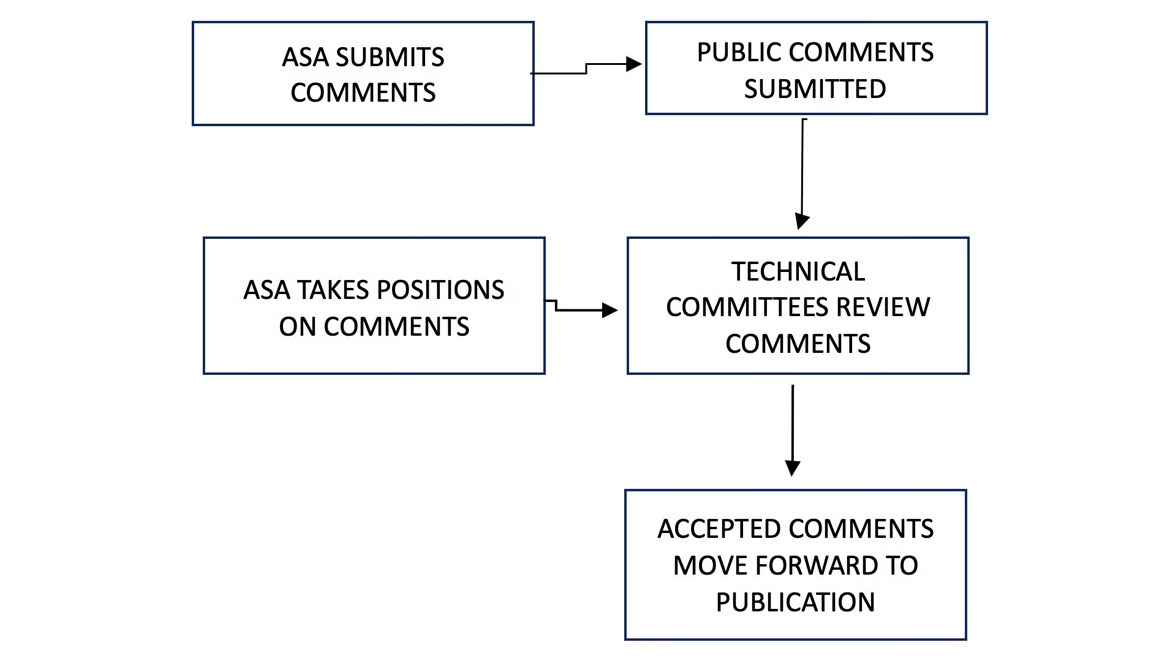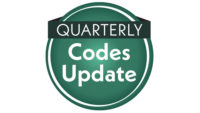The new model code development cycle begins in January 2024 and will result in the publication of 2027 model codes covering commercial and residential applications for – plumbing systems, building design, fire safety, and mechanical systems. Some of you are probably aware of the model code process and how it impacts the supply chains we are involved but I thought I would take the time in this article to explain how it may impact your businesses, explain at a high level the code development process, how ASA engages in the process representing our members and the supply chain, and how you might engage in the process.
THE IMPACT ON YOUR BUSINESS
There are two major organizations responsible for the publication of model codes that will be under review in 2024: The International Code Council (ICC) and the International Association of Plumbing and Mechanical Officials (IAPMO). I am pleased to note that both organizations are proud members of ASA. Other model code bodies exist however, those organizations work with different review cycles. ICC and IAPMO are not government bodies but rather our private not-for-profit membership organizations. Their membership includes representation from government, manufacturing, distribution, contractors, and others.
ASA supports the development of these model codes since they become the foundational model for nationally accepted regulatory requirements. The goal of developing and publishing model codes is to have those model codes adopted into regulation by Federal, State and local agencies. Once adopted into regulation these model codes become enforceable and have a significant impact on the ability to produce, distribute, and install products. Imagine if every state and local body developed their own codes impacting our industry; it would create a logistics nightmare and increase the costs of production and distribution significantly.
ASA also engages in the process to ensure codes are written that allow for the products are members produce and distribute are accepted in the codes and can be sold in a free and fair marketplace. If a product is banned from use in the model codes or not currently referenced in the model codes, it becomes very difficult to sell those products in the marketplace. In addition, these model codes have a direct impact on the design, construction, and use of your business locations through the adoption of these codes into regulation. As an example, ASA fought the banning of products that our currently distributed successfully by our members all the way to the last appeal step of the code development process. Based on our tenacity, the support of other organizations representing sectors of the supply chain, and technically sound data we were able to defeat the proposal.
It is for the above reasons that ASA staff monitor and engage in the code development cycle to make sure that proposed changes do not have a negative or costly impact on the production, distribution and installation of products.
THE PROCESS
The process facilitated by both ICC and IAPMO are similar and involve steps consistent with the requirements set forth by the American National Standards Institute (ANSI) which is responsible for accrediting codes and standards developers using ANSI nationally accepted requirements requiring openness, balanced representation, and due process. The ANSI requirements and accreditation program are recognized by government bodies at the Federal, State and local levels. Both ICC and IAPMO have been accredited by ANSI. A general outline of the process is provided below:
The actual process has many more steps including are several including comment review loops, appeal processes and other steps however, the key point to remember is there are several opportunities for ASA and our supply chain partners to have significant impact on the outcome.

ASA ENGAGEMENT
The main body responsible for the development of ASA positions related to the code development process is the ASA Codes and Standards Task Group (Task Group). The Task Group is currently considering if there is a need for ASA to submit proposals prior to the January 2024 submittal deadline. Once all public comments are received and published, sometime in March 3024, the Task Group will do a deep dive into the public comments to determine which proposals ASA should provide support for or proposals we choose to oppose. We have had significant success in this process in the past by having approximately 80% of our positions accepted during the last two model code development cycles.
I have the opportunity in representing our members and the full supply-chain during the process through attendance at meetings, submitting of positions and testifying at meetings held to consider the proposals. In addition to working with the ASA Task Group, I also work diligently to find common ground with partner organizations serving specific sections of the supply chain and when there is common ground, work together to achieve what is best for our members and all participants in the supply chain.
YOUR INVOLVEMENT
If your goal is to stay informed, keep a look out for my quarterly reports in Supply House Times which will cover key proposals and the positions we are taking. In addition, information will be routinely published in the ASA weekly e-newsletter, ASA Insights. As you stay abreast of the process and the issues, you can reach out to me directly if you have any questions or concerns related to proposed changes or the position ASA is taking on a giving proposal.
In addition to staying informed, if you are a distributor member of ASA and have an interest in model codes and standards you are encouraged to apply to serve on the ASA Codes and Standards Task Group. We are always on the lookout for interested members to participate, especially distributors. For more information feel free to contact me directly.





